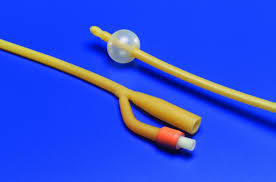Urinary catheters – not just uncomfortable but dangerous too
A new antimicrobial coating for urinary catheters could significantly reduce pain and lower the risk of infection for its users. Dr Michael Bryant of the University of Leeds, Dr Nicola Irwin and Professor Colin McCoy explain their research on the coating.

Urinary catheters are not exactly the most popular topic of conversation, but their problems affect millions of people. Catheterisation is not just a necessary and uncomfortable process, but for many, it is a daily and dangerous one where progress towards safer, more comfortable catheters has been — dare we say it — painfully slow.
The World Health Organization estimates that more than 200 million people have bladder control problems, with many needing to use urinary catheters. These catheters are drainage tubes that are inserted through the urethra to empty urine from the bladder. They are used after surgery to monitor urine output or on a long-term basis when bladder function can’t be controlled, such as in cases of spinal injury or neurological disorders.
The traditional indwelling, or Foley, catheter remains in place for up to three months and is attached to a collection bag. One in four patients get an indwelling catheter during a hospital stay, often unnecessarily. Use of a catheter is also beset by issues of infection — almost all long-term catheterised patients have bacteriuria (bacteria in the urine) after a month.
To continue reading, please click here.
Article originally appeared in The Conversation.
The featured image has been used courtesy of a Creative Commons license.




